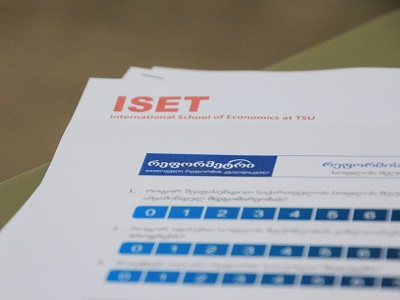- Details
On December 14 2017, the second phase of ReforMeter started with an evaluation of Georgia’s agricultural development.
According to a Government Survey, 74.9% of the strategy has already been implemented. In the first phase, the same indicator was at 69.5%, although improvement of the Ministry of Agriculture organizational structure is still in process. The Ministry is currently implementing the following projects: gene-bank development for the conservation of agro-diversity and endemic species, scientific research on storage and processing methods, and the rational use of soil. In order to support agricultural cooperation, the following new projects were introduced: cooperative support programs in the viticulture sector, a State Program to Support Beekeeping Agricultural Co-operatives, and a program for the rational utilization of pasture and meadows. It was stated that the Agriculture Registry does not exist yet, the seed/planting material certification is still in process and a geo-information system, an analog to the Land Parcel Identification System (LPIS), does not exist either. The total area of irrigated land was increased by 2000 ha and drained land area sby 1900 ha as well. In addition, the creation of a modern DNA laboratory and the seed/planting material certification system is in process.
- Details
ISET Policy Institute started working on the Regulatory Impact Assessment (RIA) on the selected topics under the Draft Law on Insolvency Proceedings. In this project, ISET is partnering with the Berlin Economist, the German consulting group.
The project aims to conduct a RIA in light of 2030 Agenda requirements on following important topics under the draft law on insolvency proceedings:
1. establishment of a new profession of Insolvency Practitioners, their rights, duties and authorization to take insolvency appointments;
2. rights of the creditors under insolvency regimes (including ranking of creditors and pertaining risks);












